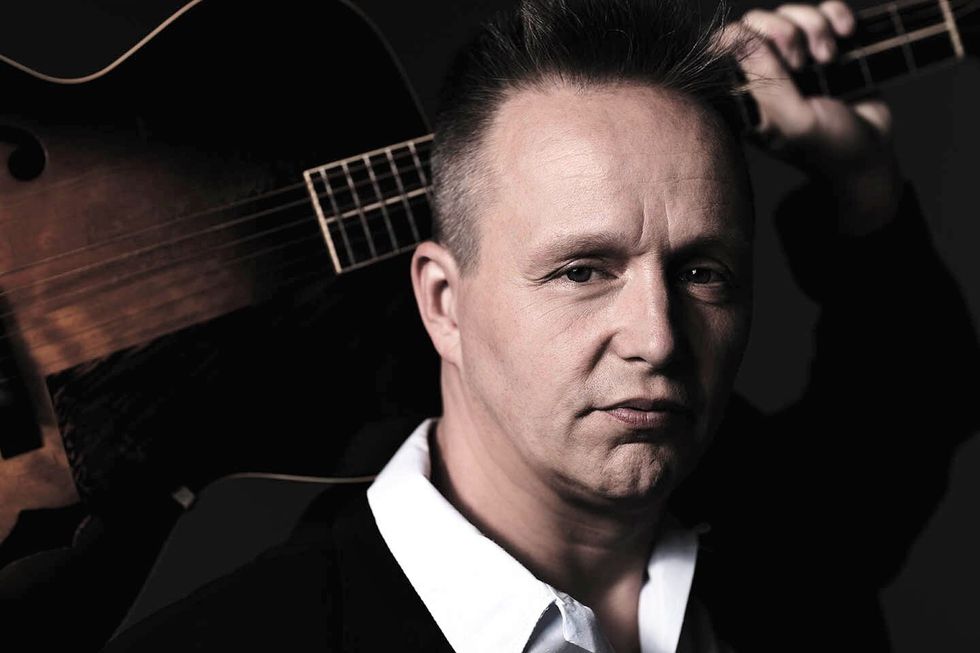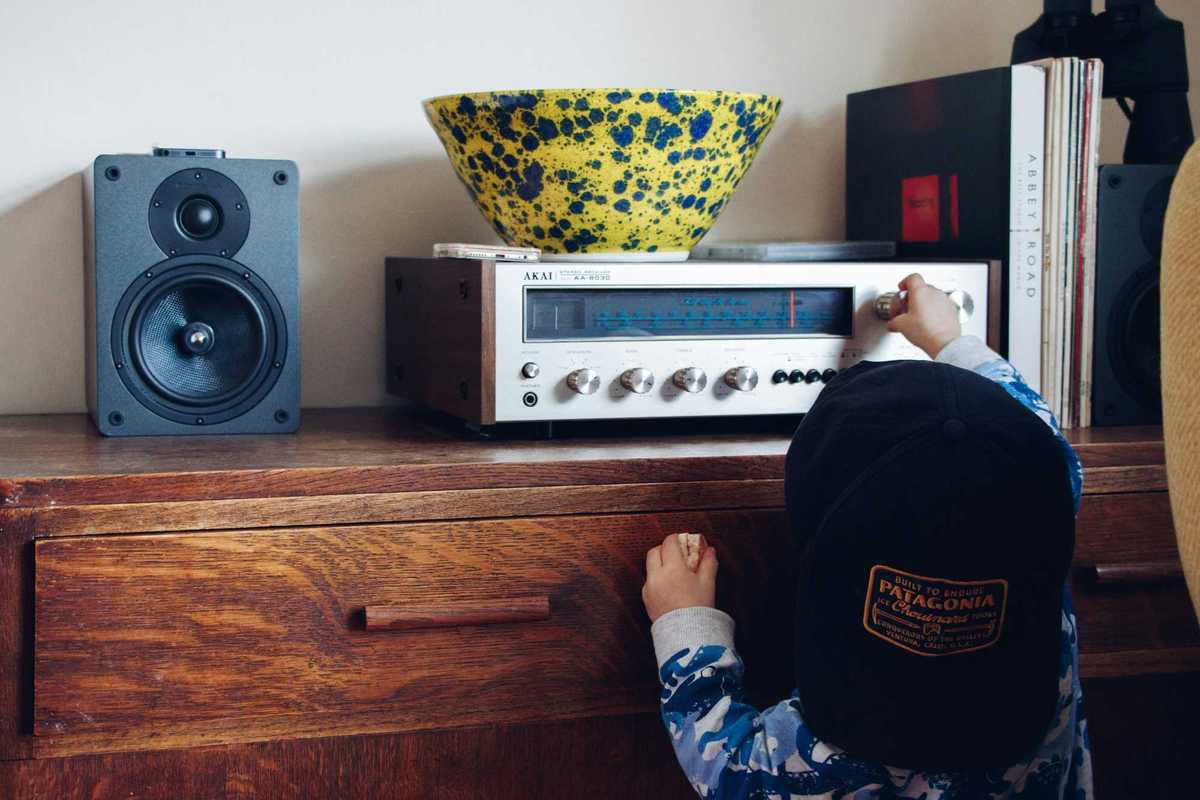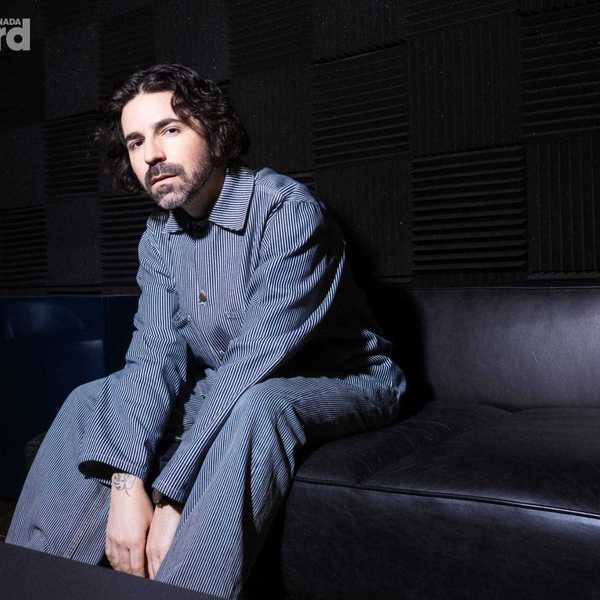Surviving As A Musician... with Big Rude Jake
The following, submitted by Big Rude Jake (born Jacob Hiebert), is the first of an on-going series of personal accounts by independent musicians about how the d

By External Source
The following, submitted by Big Rude Jake (born Jacob Hiebert), is the first of an on-going series of personal accounts by independent musicians about how the digital age and, in particular, music streaming, has affected their incomes. Jake lives in Hamilton, ON, and has been playing music professionally for the past 30 years. He is currently seeking out ways to fund his next album, the eighth in a career that has taken him across Europe and brought joy to many in hot jazz clubs in Ontario.
Most of my friends are amazed that I am still at it.
After 30-plus years, I still travel the world playing music as my primary source of income.
They congratulate me and say that I am “living the dream.” I accept the compliment, but, while it is true that I love to play, it’s also true that I often think of it as not so much living the dream, but as “dodging the nightmare.”
I’m just one of those people who can’t be normal. I tried doing the “straight job” thing after university, but I couldn’t hack it. I was depressed and self-medicated much of the time, pretending that I didn’t know what I really wanted to do. Finally, I got myself into such a miserable state that my truth was too obvious to ignore: either I make music or I face my own oblivion. One night, in a dream, I met my alter-ego. He was a bold and brazen fellow who read Bukowski and sang the Blues. I called him Big Rude. The next morning, I woke up with a plan. The rest is 12-bar history. For the most part, aside from a few ugly break-ups and a handful of really bad calls, I’ve been a happy fellow.
Dodging my nightmare means living with poverty, but not accepting it as a terminal condition. I’m always on the hustle, looking for new and better-paying gigs, strategizing, plotting… it’s a game that I play in my head all day long. And there have definitely been a few pay-offs.
Still, Nick Krewen’s piece in the Feb 14 edition of FYI, entitled “Musicians’ New Reality,” pretty much nailed it: opportunities for players to earn are continuing to float out of reach. Nick’s article suggests the big slide into “starving artist” mode began with Napster. But I contend that musicians have been in steady decline since the ’80s when labels expected artists to fall into their rosters fully developed, sporting a massive fan base and maybe even flogging their own self-produced album. Almost completely gone were the development deals. You had one album to make or break. This ridiculous business model was developed by execs who were parachuted in from parent corporations that were suddenly interested in buying record companies. They had no knowledge of the business of music and thought they could sell CDs like they sell microwave ovens. When this ill-advised business plan tanked, the label execs got transferred to other six-figure jobs and the artists got the shaft.
Suddenly, I had two nightmares: one of living like a normal boring person, and another of getting screwed over as often happens in music. After my one and only record deal collapsed and I got the royal run-around, I decided to make my own records. I learned quickly that one has to remain nimble, flexible, alert and in action. It’s a big sweaty hustle. Many of us who got our start in the ’90s had a “burn your ships” attitude. By this I mean we threw ourselves into the job of making money out of music and left ourselves no back-door.
These days, most of my income comes from live shows: ticket sales, pass-the-jug style gratuities and back of room sales. I occasionally receive financial gifts, and sometimes I am given valuable goods that make it possible to do my job. It’s all about developing rapport with your audience and giving people the chance to help out on their own terms. If I knew in the beginning that survival would mean being an amicable “people person,” I would have picked a better moniker than “Big Rude.” What was I thinking??
If I were to offer some general tips to other struggling musicians, especially other singer-songwriters, they would be as follows:
1) Your music need not be marketed to simply one niche. Reach out to as many people as possible. These days, there are a lot of very cool people over 45. Perform with conviction, master your instrument and your craft, and you will win fans from all demographic distinctions. Just remember that young people stay out late, and will make you feel great, but older people still buy CDs because they have all the money.
2) Shake some hands at every show. Let people tell you their stories. They have been listening to you, now it is your turn to listen to them. Show them that you give a shit. These people are the ones who will make your lifestyle possible. No one else is more important than the end-user of your product. Respect them.
3) Diversify your income streams. In my case, I found a source of income playing music for seniors. I specialize in music for people who suffer from dementia. I also teach guitar, and I play music for special adults with severe developmental disabilities. And, I play funerals. You read that correctly. I’m a certified life celebrant, and people hire me to deliver eulogies and inspiring messages. What makes me unique in the business is that I also sing old-time hymns for bereaved families.
At the risk of sounding hyperbolic, I think I would be dead or in an asylum if I were not able to make music for people every day. Having said that, my life is different from when I got started. I’m a dad now, and I have a loving spouse. So, it’s not about me anymore. Other people need me to earn. Further to this, I’m looking down from the wrong side of 50, and my body likes to remind me that I am not immortal.
One of these days I will be forced to back off from the hamster wheel that sets the pace of my hectic life. That means I must pursue more rigorous financial planning.
To this end, I have some new ideas that I intend to implement in 2020 to take me to the next level in this crazy game called “indie music.”
Will this finally be the year of the Jake?
Stay tuned, gentle readers.
Below, a classic reel of Big Rude Jake and the Oberkampf Swing Punks live in France performing Queer for Cat, a song that captures his jump jive brand of music that draws from an eclectic and diverse stable of unique musicians, including Nick Cave, Tom Waits and Duke Ellington.

















